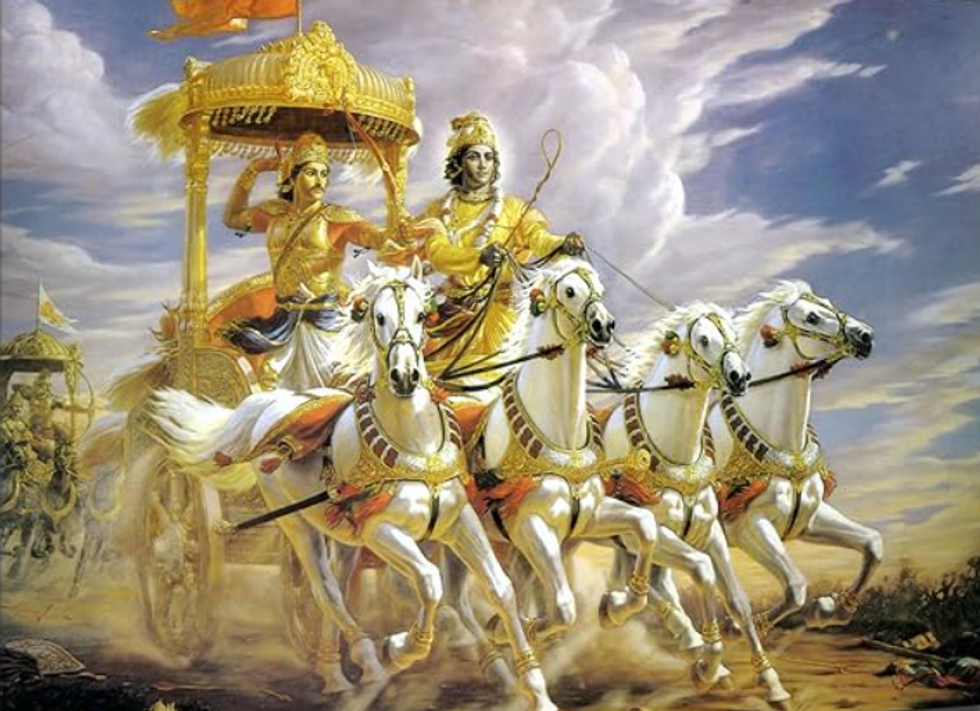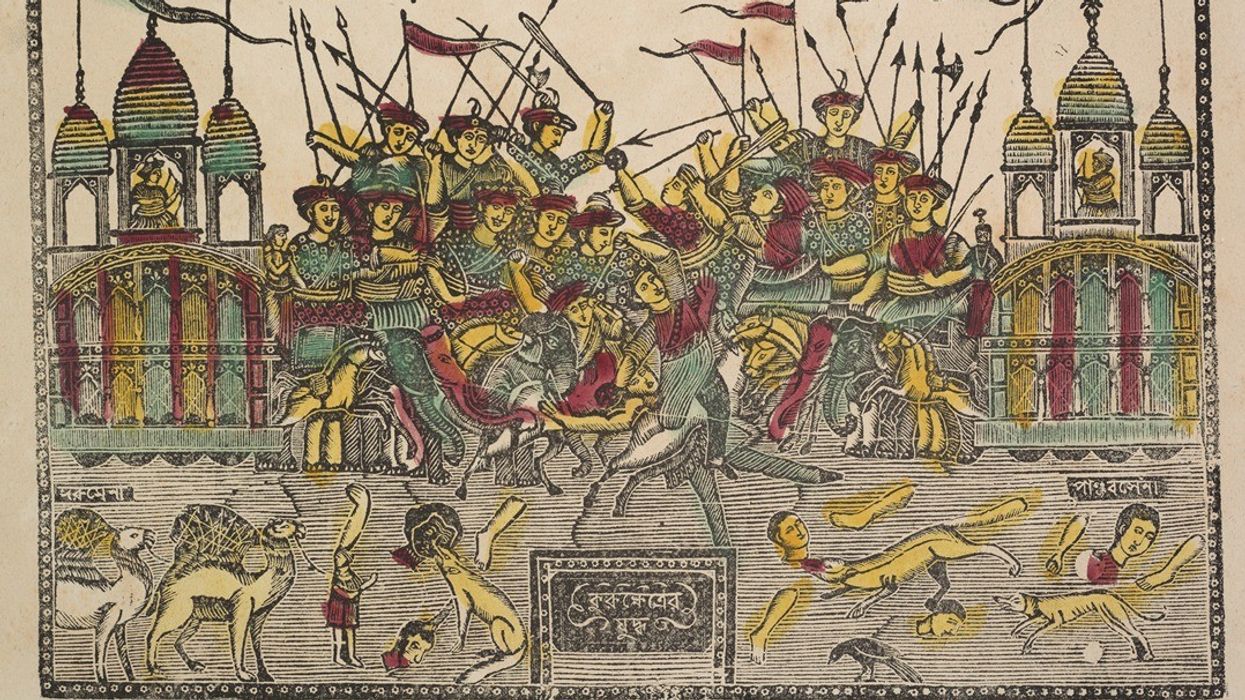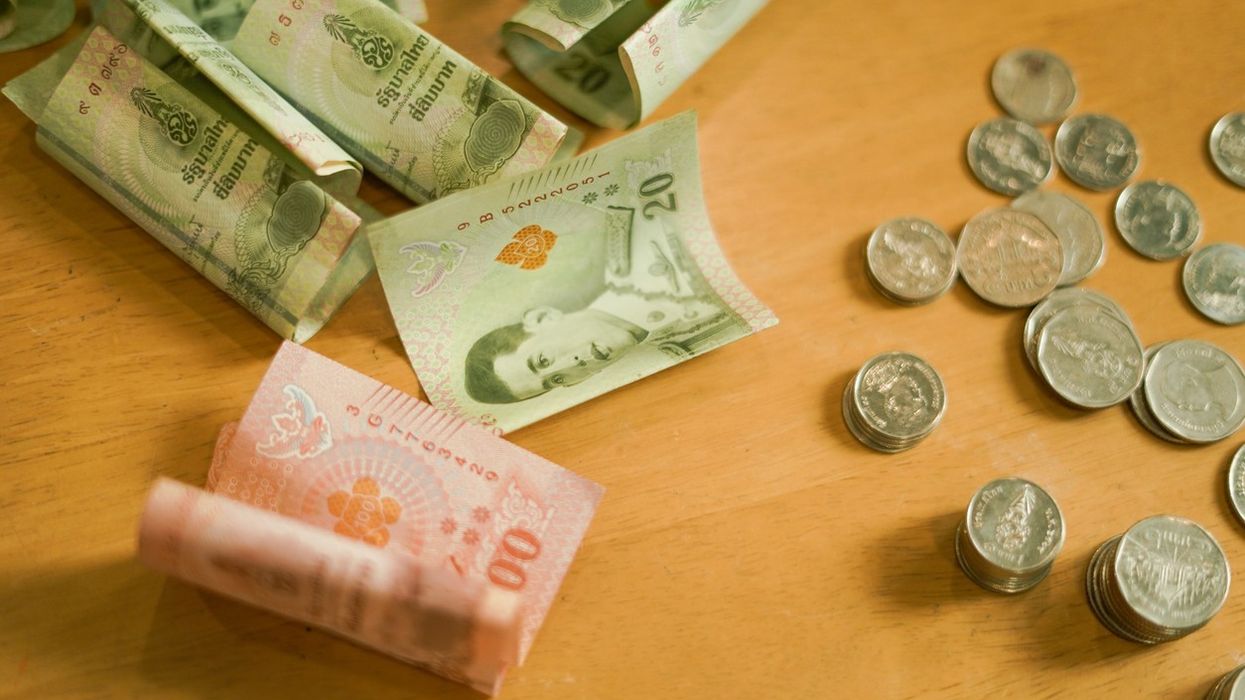War and peace have exercised the minds of human beings for as far back as history goes. It is no wonder then that the Mahabharata war, which took place over 5,000 years ago, became a moment of intense discussion between Lord Krishna and Arjuna.
Hundreds of thousands of people on either side were ready to begin battle on the site of Kurukshetra. Seeing the armies and his near and dear combatants, Arjuna lost the will to fight. How could he fight his grandfather Bhisma and his guru Dronacharya? He asked Krishna what all the bloodshed would achieve.
Krishna replied that every effort to resolve the conflict had been blocked by Duryodhana. Duryodhana had refused to give the Pandavas even a needlepoint of land, despite Lord Krishna's peace proposal that they accept just five villages. Krishna urged and convinced Arjuna that it was his dharma to fight a righteous war, even if it came with painful consequences.
While war is characterised by violence and destruction, it can also be a catalyst for peace negotiations and treaties.
Charles Minard's iconic flow map illustrating Napoleon's ill-fated invasion of Russia, highlighting the vast distances and severe lossesAge of Revolution
The great political master Chanakya (350–275 BCE), guru of Chandragupta of the mighty Maurya empire, wrote the famous treatise Arthashastra. In it, he describes in detail the steps one must take to wage war. Kautilya suggested four policies: conciliation (sama), compensation (dana, or gifts to adversaries to pacify them), dissension (bheda, creating divisions within adversaries), and force (danda, attack). These could be used singly or in combination, depending on the context.
However, like Krishna, Chanakya advocated war only when all other alternatives were exhausted.
According to Von Clausewitz, a military theorist (1780–1831), “War is merely continuation of a policy by other means.” He believed military objectives that support political aims fall into two broad types: wars to achieve limited goals, and wars to disarm the enemy—rendering them politically helpless or militarily impotent.
After suffering years of terrorist violence and the recent brutal killings of Hindus in Kashmir, India feels it has exhausted all avenues of peace with Pakistan.
There has also been a school of thought which rejects war altogether. Leo Tolstoy, author of War and Peace, had strong anti-war sentiments, expressed through his writings and personal life. In his book, he chronicled the French invasion of Russia in 1812, led by Napoleon Bonaparte.

Tolstoy himself fought in the Crimean War (1853–1856), a conflict between the Russian Empire and an alliance of the Ottoman Empire, the Second French Empire, the United Kingdom of Great Britain and Ireland, and the Kingdom of Sardinia-Piedmont. Sardinia is an island and autonomous region of Italy.
Tolstoy believed war was inherently unjust and a product of government actions, rather than the people's interests. He emphasised the importance of love—both human and divine—as a force for peace and against the brutality of conflict.
Christians have a concept called a Just War, taken up only as a last resort. They also had the doctrine of holy wars called the Crusades, meant to recapture occupied territories. This idea is now considered a shibboleth.
The current Russia-Ukraine war has brought some interesting observations, according to Benjamin Jensen, director of the Futures Lab and senior fellow for the Defence and Security Department at the Centre for Strategic and International Studies.
He points out that the war has shown the rise of drone warfare and electronic warfare as defining features of modern conflict. Long-range attack drones have played a crucial role.
After the Russian invasion in February 2022, then-Ukrainian ambassador to India, Igor Polikha, urged PM Modi to help stop the war. He said India had qualified in diplomacy through Kautilya several thousand years ago, when Europe had no civilisation.
Unfortunately, President Zelensky of Ukraine has presided over the destruction of his country, having failed on both diplomatic and military fronts.
(Nitin Mehta is a writer and commentator on Indian culture and philosophy. He has contributed extensively to discussions on Hinduism, spirituality, and the role of Gurus in modern society. You can find more of his work at www.nitinmehta.co.uk.)




Anurag Bajpayee's Gradiant: The water company tackling a global crisis